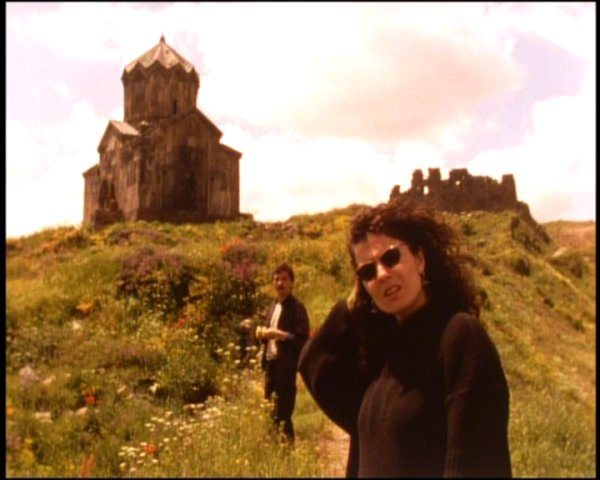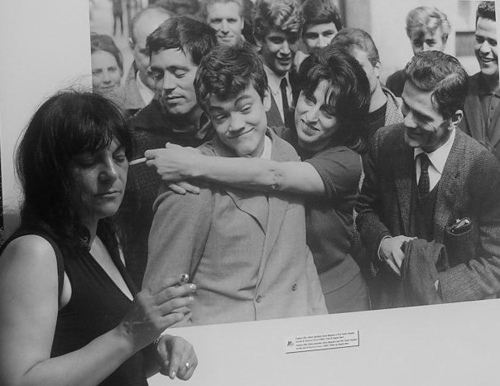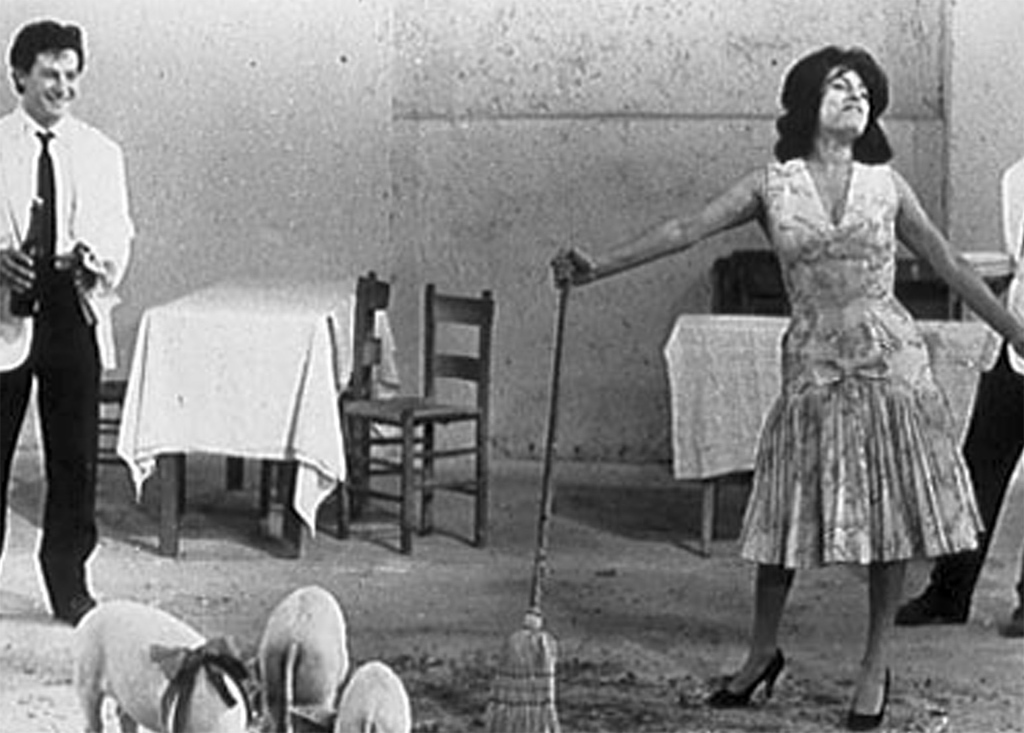Written for a Portuguese exhibition catalogue in Fall 2016. My affectionate thanks to Nicole Brenez for both landing me this assignment and correcting a few of my imprecisions.– J.R.
1. On a film by Jean-Luc Godard
I’ll never forget the very strange sort of non-reception that appeared to greet the challenge of Jean-Luc Godard’s Numéro Deux when it first appeared in France, the United Kingdom, and the United States. The first time I saw the film, in the mid-1970s, soon after its unexpectedly wide commercial opening in Paris — a release apparently prompted by the misleading claim that it was a “remake” of A bout de souffle (premised on the fact that it had the same producer, Georges de Beauregard, as well as the same budget, without allowing for any inflation), plus the fact that it was being distributed by Gaumont — was at a large cinema just off the Avenue des Champs-Elysées, where I was startled to find myself the only person inside the auditorium. Communing all alone with that big screen containing many smaller screens was a singular experience in more ways than one.
When Numéro Deux was subsequently shown at the Edinburgh Film Festival, the key annual event of Marxist film theorists in the United Kingdom, many of the intellectuals associated with Screen magazine who had previously treated Le gai savoir and Vent d’est as exemplary manifestos for a political “counter-cinema”, quoting from its various speeches as if they were all graspable and teachable recipes for a revolutionary practice, abruptly dismissed Numéro Deux for its alleged “sexism” and “mystifications” (if they bothered to discuss it at all). Read more
From the Chicago Reader (August 19, 1994). — J.R.

**** CALENDAR
(Masterpiece)
Directed and written by Atom Egoyan
With Arsinee Khanjian, Ashot Adamian, and Atom Egoyan.

In terms of craft, originality, and intelligence, there are few young filmmakers in the world today to match Atom Egoyan — a Canadian writer-director with a bee in his bonnet about video, photography, voyeurism, sexual obsession, troubled families, and personal identity (not necessarily in that order). But of his half-dozen features to date, the only one I’m comfortable calling a flat-out masterpiece is his fifth, Calendar — in some ways the least premeditated or worked over of the bunch. (Its successor, Exotica, which showed at Cannes in May 1993, will probably surface in New York later this year, which means it probably won’t get to Chicago before next summer.)
There are various ways of categorizing Egoyan’s six features, but perhaps the most useful involves distinguishing between the relatively low-budget ones, which happen to be my favorites — Next of Kin (1984), Family Viewing (1987), and Calendar (1993) — and the slicker, more expensive ones: Speaking Parts (1989), The Adjuster (1991), and Exotica (1994). Though all these movies have similar preoccupations and many have similar formal structures, a few distinctions between them are worth noting. Read more
From the Chicago Reader (May 19, 1995). — J.R.

Mamma Roma
Rating *** A must see
Directed and written by Pier Paolo Pasolini
With Anna Magnani, Ettore Garofolo, Franco Citti, Silvana Corsini, Luisa Orioli, Paolo Volponi, Luciano Gonini, Vittorio La Paglia, and Piero Morgia.

Who can predict the changes in intellectual fashion over 20 years? In 1975, when the controversial Italian writer and filmmaker Pier Paolo Pasolini was brutally murdered by a 17-year-old boy in a Roman suburb, he was no more in vogue than he had been throughout his stormy career. If any openly gay writer-director was an international star in the mid-70s, it was Rainer Werner Fassbinder, who at that point was spinning out as many as three or four features a year; he died in 1982 after an orgy of cocaine abuse.
Pasolini and Fassbinder were both maverick leftists who often alienated other leftists as well as everyone on the right, and both had a taste for rough trade, but in terms of their generations (Pasolini was born in 1922, Fassbinder in 1946) and cultural reference points they were radically different. The only reason to compare them now is to note how much their reputations and visibility have changed here over the last two decades. Read more




